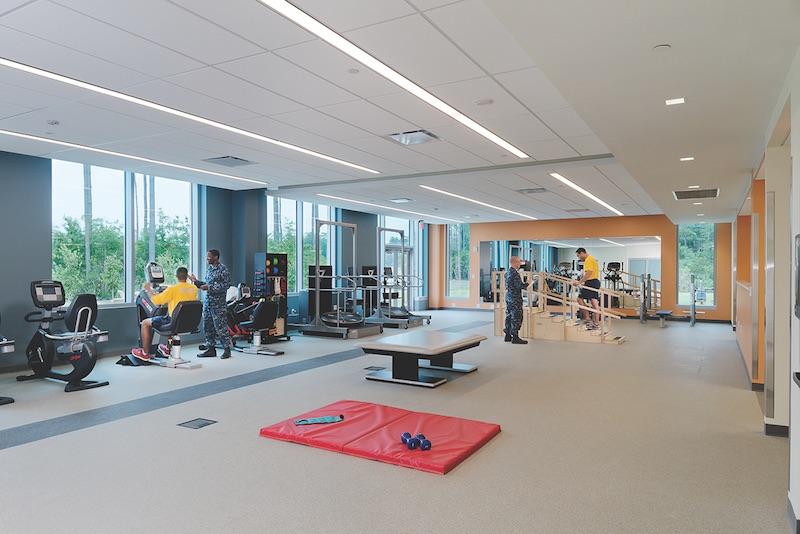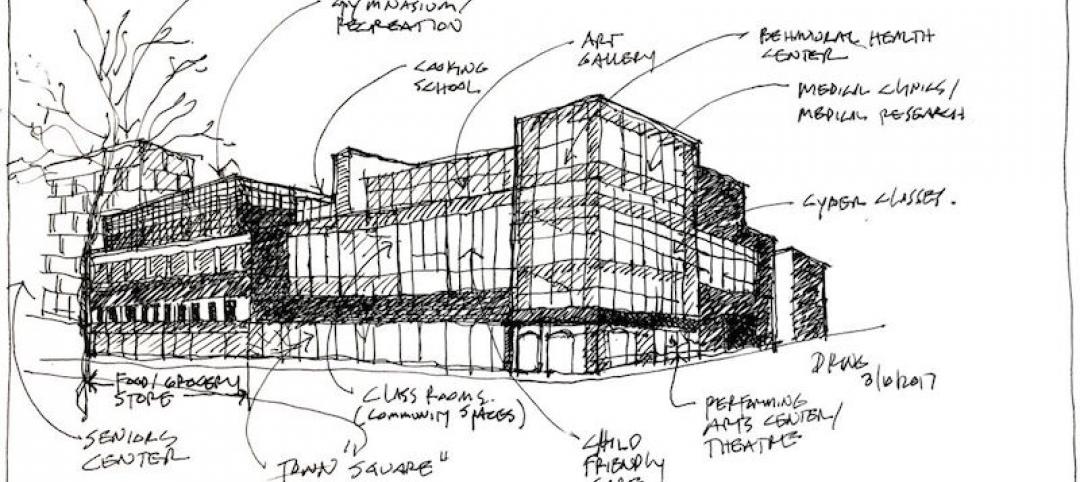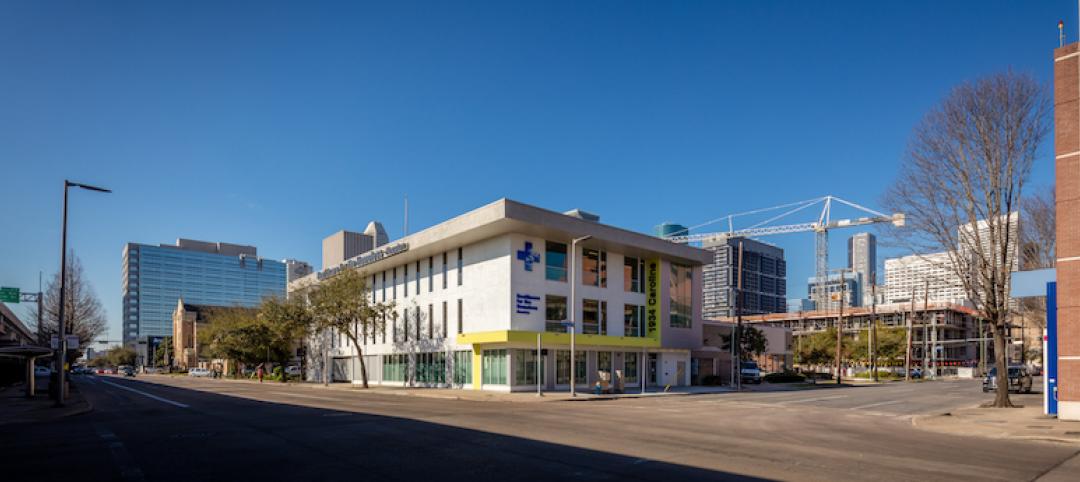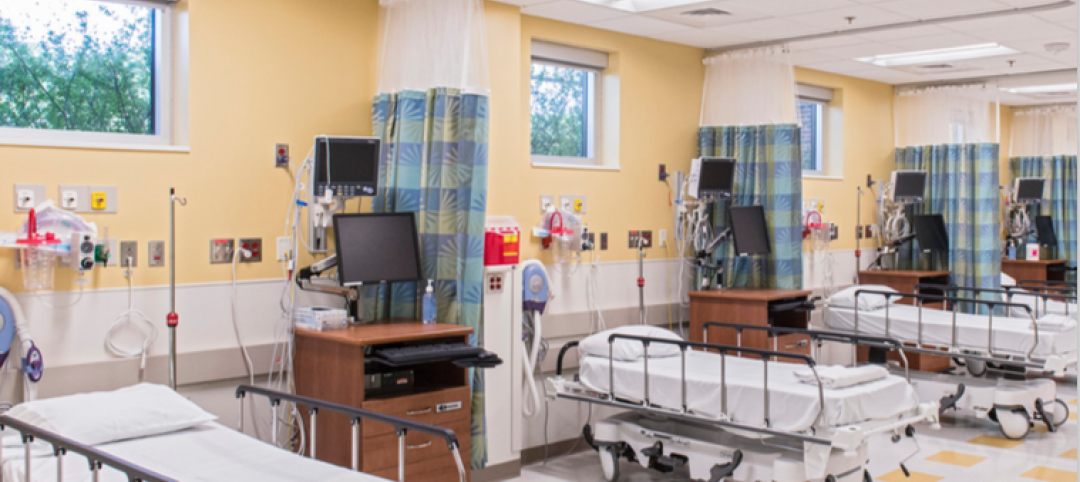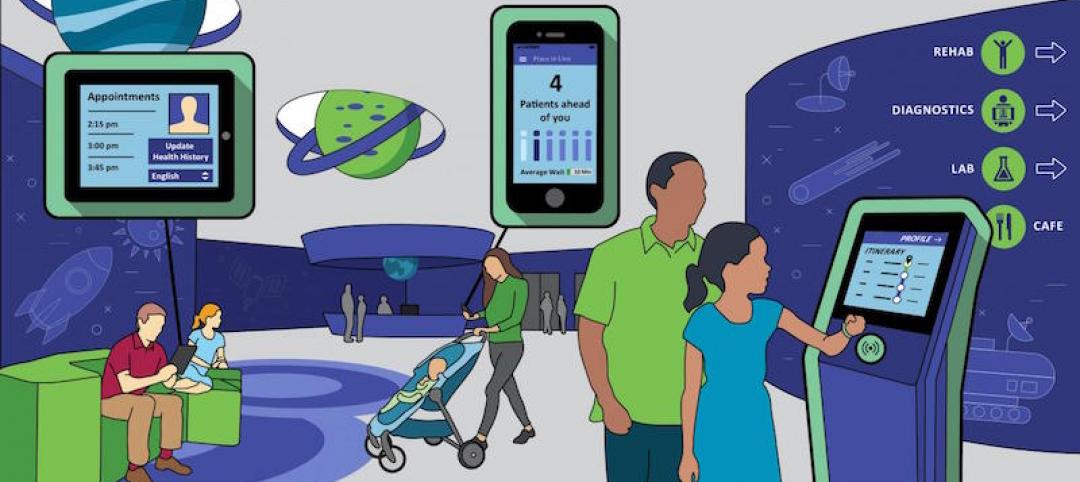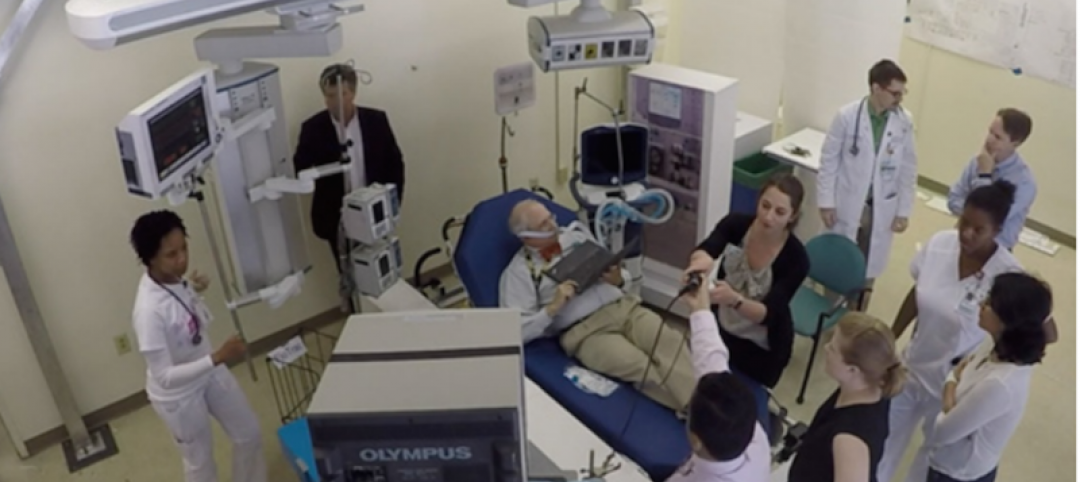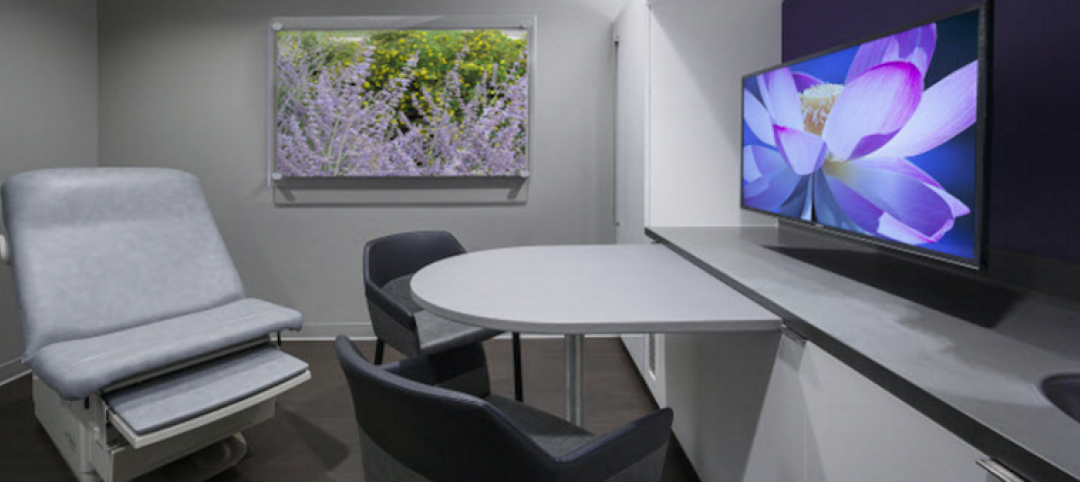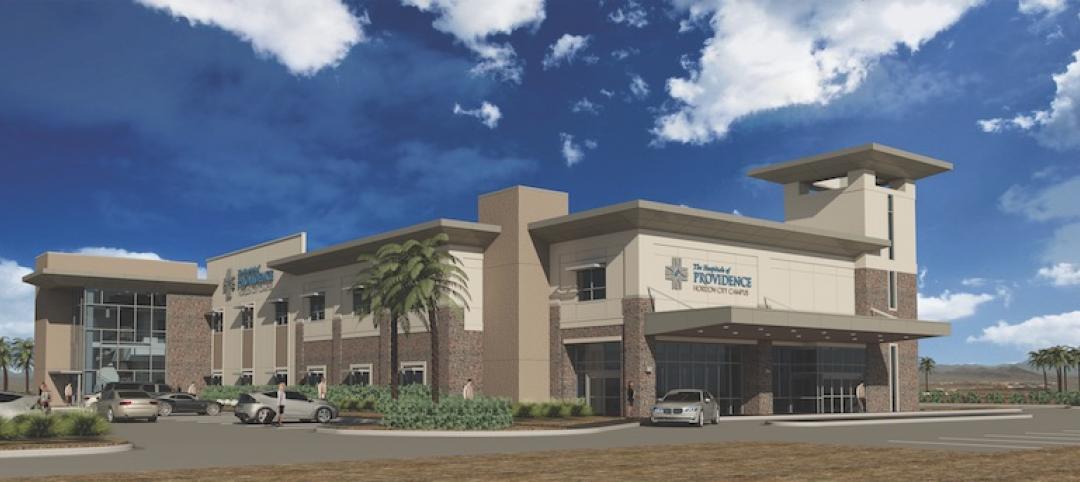Over the past six years, SmithGroup has been working with the Intrepid Fallen Heroes Fund (IFHF) to design and build satellites to the 72,000-sf National Intrepid Center of Excellence (NICoE) in Bethesda, Md., which since 2010 has treated traumatic brain injuries and post-traumatic stress disorders suffered by active-duty military personnel.
To date, seven NICoE Spirit satellite centers—which average 25,000 sf and between $10 million and $12 million in construction costs—have been built on the grounds of Fort Belvoir in Virginia, Camp Lejeune and Fort Bragg in North Carolina, Fort Campbell in Kentucky, Fort Hood in Texas, Joint Base Lewis-McChord in Washington, and Camp Pendleton in California.
Philip Tobey, a Senior Vice President at SmithGroup, says one other NICoE Spirit in design and two others await funding.
The Intrepid Fallen Heroes Fund is led by Arnold Fisher, a Senior Partner with Fisher Brothers, a real estate developer and builder in New York. Originally, he formed the fund to supplement the paltry ($6,000) benefits the government had been paying families of military personnel killed in action. When the government raised its payout to $100,000 per family, IFHF approached the Army Surgeon General to see what else it could do to help active duty military.
See Also: Medical office construction isn’t keeping pace with the aging of America
At that time (2005), 23,000 troops had been wounded in Iraq and Afghanistan, 10,000 of whom sustained injuries that prevented them from returning to duty.
The fund, says Fisher, raised $72 million for the Center for the Intrepid, a 65,000-sf rehabilitation training and research center on five acres at Brooke Army Medical Center near Fort Sam Houston in San Antonio. IFHF was instrumental in assembling the project team for this project, which included SmithGroup (design architect), Syska Hennessy Group (engineering systems design), Cagley & Associates (SE), Garcia & Wright Consulting Engineers (CE), Counsilman Hunsaker (natatorium consultant), Plaza Construction (owner’s rep), and Skanska USA (CM).
IFHF subsequently raised $92 million to build NICoE, which opened on the campus of Walter Reed National Military Medical Center, in Bethesda, Md., The facility has $26 million of imaging equipment, which places it "seven or eight years ahead of civilian research,” says the 85-year-old Fisher.
The Intrepid Fallen Heroes Fund donates the healthcare facilities it builds to the U.S. Department of Defense. Its only stipulation is that it have complete autonomy in managing the projects, which allows it to accelerate the production schedule. The Center for the Intrepid was designed and built in 18 months, and the NICoE Spirits are being completed in 14 months.
Fisher says that speed is of the essence to meet the pressing needs of physically and psychologically damaged troops. “I’m a builder, and I push to get projects done,” he explains. Fisher notes that SmithGroup has been the “perfect partner” because “they understand what we need and the importance of the look of the building” to a patient’s recovery.
Related Stories
Healthcare Facilities | Apr 11, 2017
Today’s community centers offer glimpses of the healthy living centers of tomorrow
Creating healthier populations through local community health centers.
Healthcare Facilities | Apr 2, 2017
Comfort and durability were central to the design and expansion of a homeless clinic in Houston
For this adaptive reuse of an old union hall, the Building Team made the best of tight quarters.
Healthcare Facilities | Mar 31, 2017
The cost of activating a new facility
Understanding the costs specifically related to activation is one of the keys to successfully occupying the new space you’ve worked so hard to create.
Sponsored | Healthcare Facilities | Mar 29, 2017
Using Better Light for Better Healthcare
Proper lighting can improve staff productivity, patient healing, and the use of space in healthcare facilities
Healthcare Facilities | Mar 29, 2017
Obamacare to Republicare: Making sense of the chaos in healthcare
With a long road of political and financial uncertainty ahead for the healthcare sector, what does this mean for the nonresidential construction industry’s third-largest sector?
Healthcare Facilities | Mar 24, 2017
5 insights for designing a human-centered pediatric experience
Pediatric experience design must evolve beyond the common mantra of “make it fun” or “make it look kid-friendly.”
Healthcare Facilities | Mar 3, 2017
CBRE: Developing a total project budget for a healthcare capital project
Successfully developing a complete and well thought out Total Project Budget is perhaps the most important task you’ll perform in the initial phase of your project.
Healthcare Facilities | Feb 26, 2017
A Georgia Tech white paper examines the pros and cons of different delivery systems for ICUs
It concludes that a ceiling-mounted beam system is best suited to provide critical care settings with easier access to patients, gases, and equipment.
Healthcare Facilities | Feb 24, 2017
The transformation of outpatient healthcare design
Higher costs and low occupancy rates have forced healthcare facilities to rethink how healthcare is delivered in their community.
Healthcare Facilities | Feb 7, 2017
Microhospitals: Healthcare's newest patient access point
Microhospitals are acute care facilities that are smaller than the typical acute care hospital. They leave complex surgeries to the big guys, but are larger and provide more comprehensive services than the typical urgent care or outpatient center.


